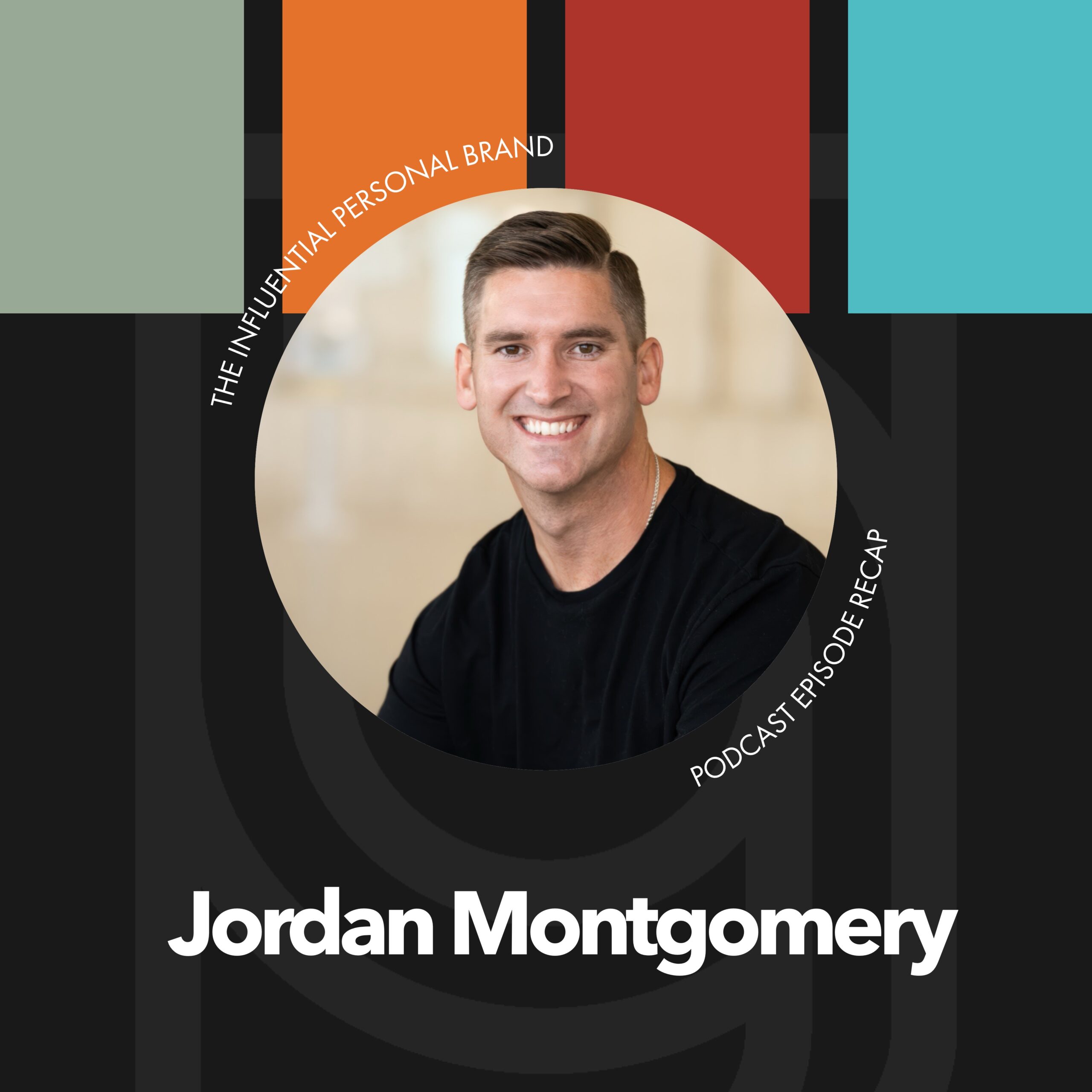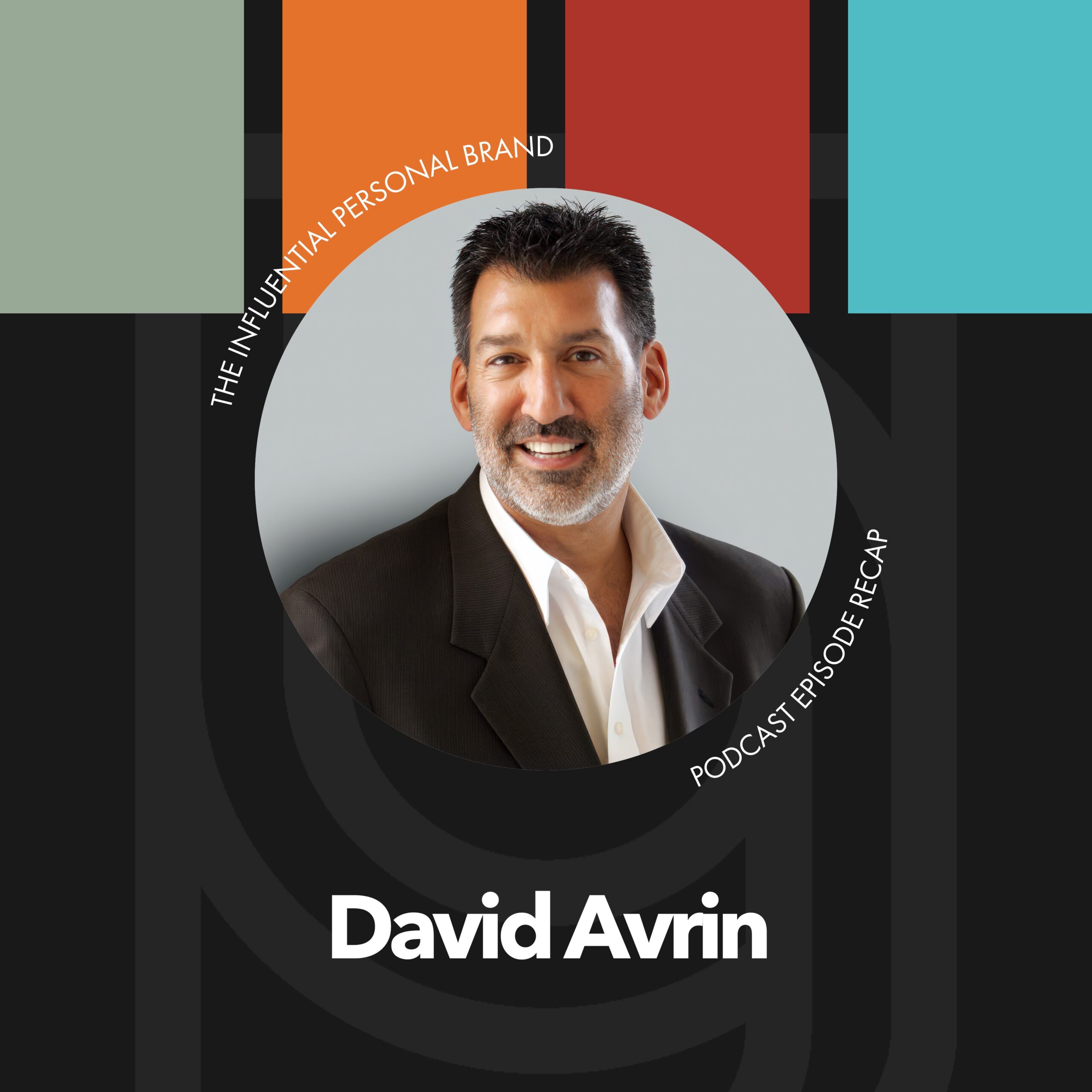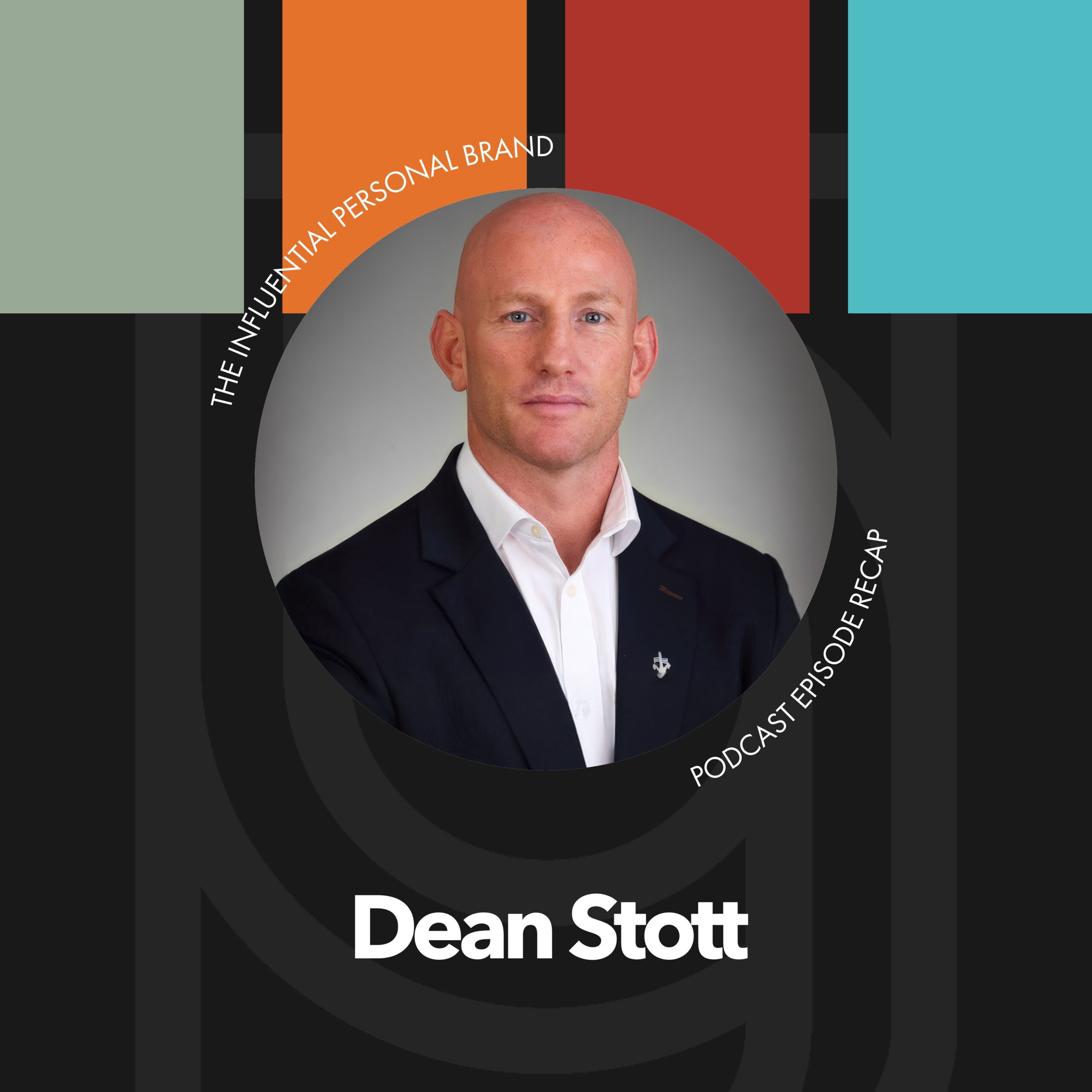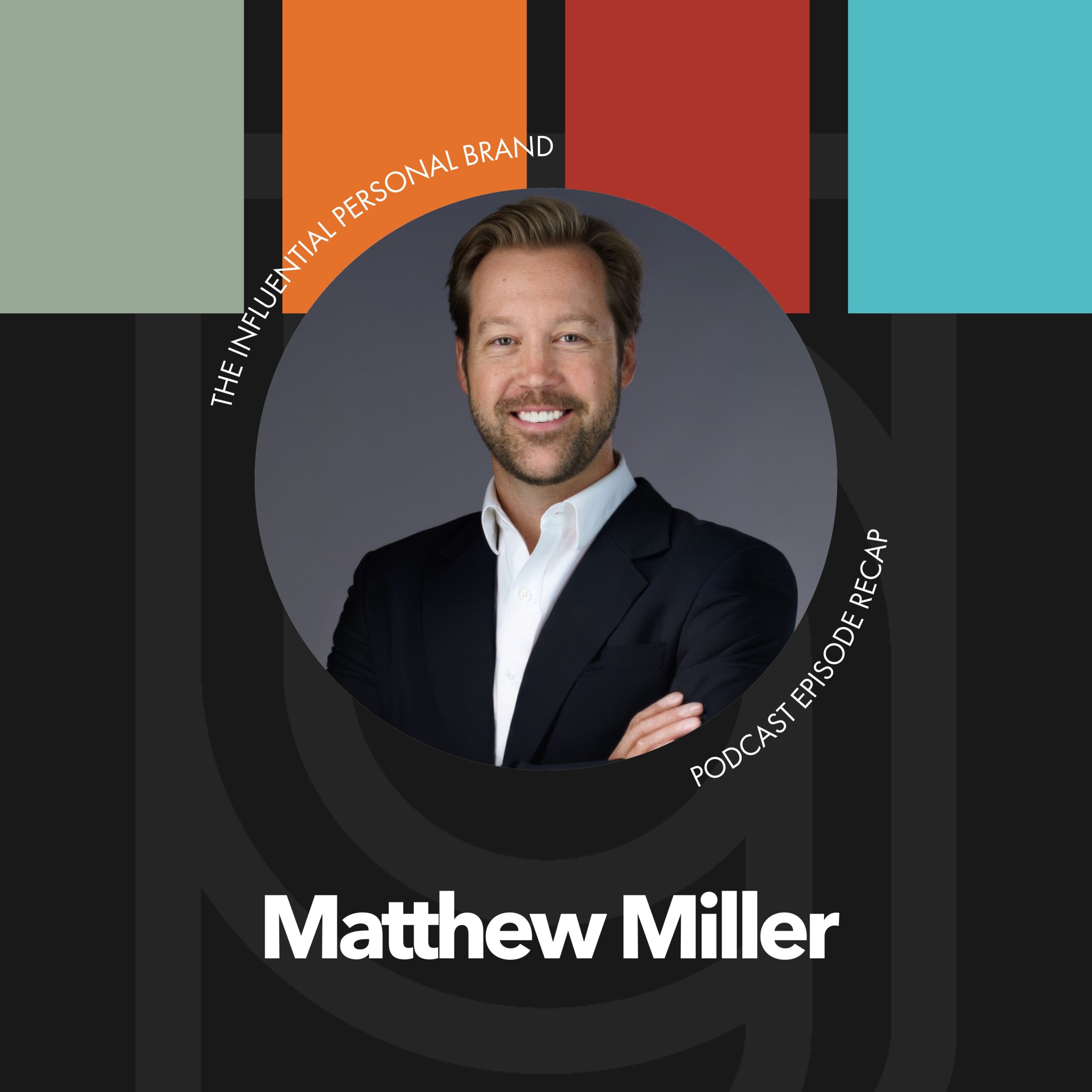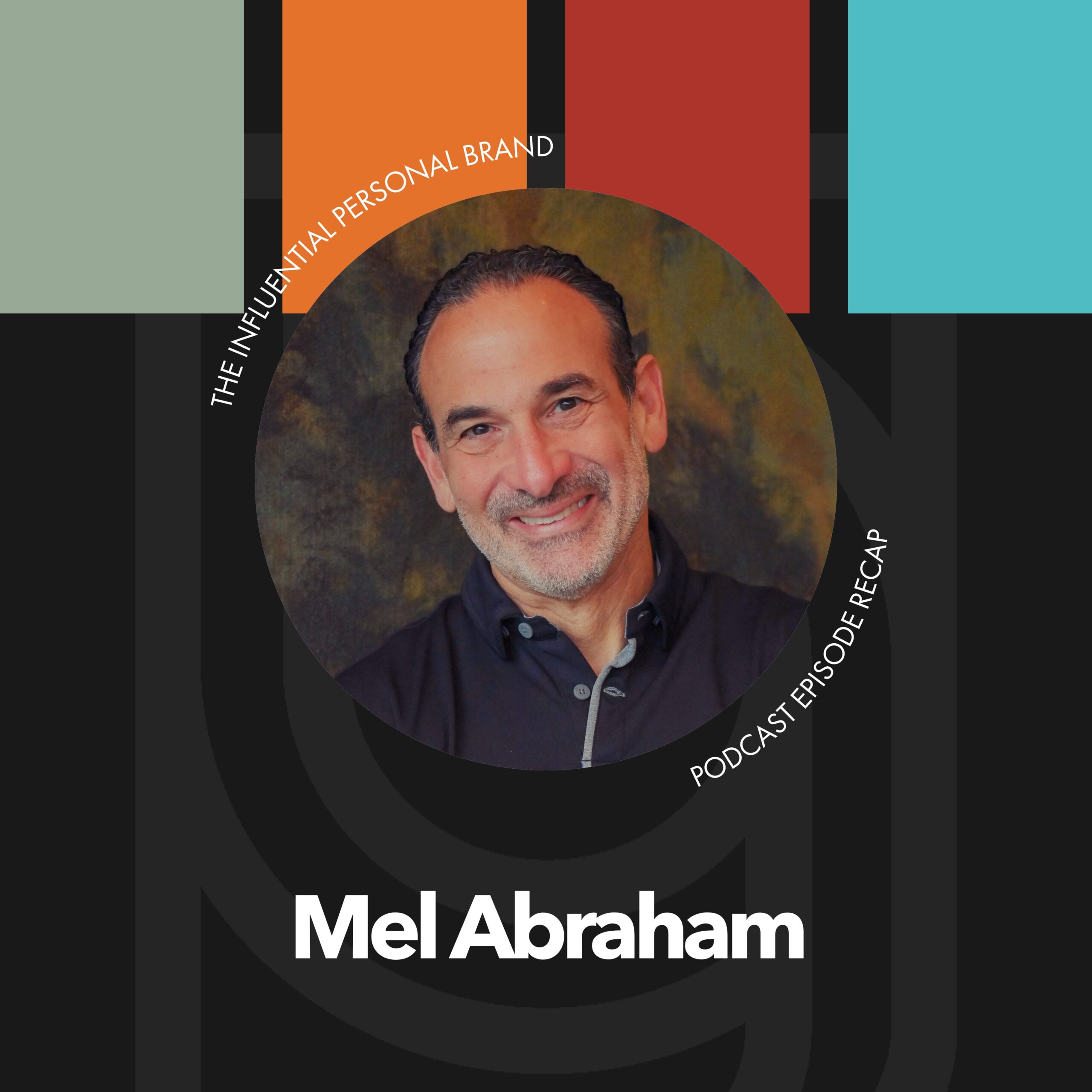Speaker 1 (00:00):
RV (00:07):
Hey, welcome to this special recap edition of the influential personal brand podcast is Rory Vaden breaking down this interview, filling in for AJ going solo today. But, but this incredible interview with Kim Scott, which kinda caught me a little bit by surprise at how powerful it was. And, you know, Kim is really known for radical candor. I mean, at least in my circles, she’s, she’s known it was a very successful book. And so her new book here I hadn’t heard much about. And, and so just getting into this, it was, it was meaningful for me. And it’s funny because one of the things I love
RV (00:53):
About this show and doing this show, you know, for, for you and with you is how often these tactical kind of personal brand strategy conversations end up applying to just our everyday real life. Right? Like and this was one of those where it was like, okay, this, this affects my personal brand, but this also, you know, maybe even more so I see this one going, geez, this, this, this effect, some things going on for me personally, that I need to, you know, just do better, do better with and be more mindful of. And so anyways, yeah, there’s, there’s, there’s a couple of key takeaways here. And, and they, they apply, I think in both personal to both personally and, and then professionally or with the personal brand. So the first thing that she talked about that really stuck with me was this, this concept of the three levels of bias.
RV (01:59):
And, you know, I like to think my I like to think of myself as a thing most of us probably do as not being prejudiced and, and, you know, not being discriminatory and being, you know, kind of like open minded and, you know, for the most part, pretty welcoming and receptive of, of different, different people from different, you know, places in life and different belief systems and things. But it was powerful for me to think of that. Not as like a yes, no, as like a, okay, it’s this, or it isn’t this like you either are, or you aren’t, and it really is more of a continuum. And so her three levels, I think her lowest level she said was, was biased. Meaning, you know, it’s kind of like UFM somebody, or you say something that’s unfair and you didn’t really mean to, it’s just kind of like, you’re not even like aware of it.
RV (02:54):
And then there’s prejudice, which is like, oh no, I know exactly what I’m saying. I know why I’m saying it. And I actually do believe this, and I do believe whatever. There’s a difference here between two classes of people or however you want to call it. And then there’s bullying, which is like, kind of felt to me, she didn’t say it quite like this, but the way that I processed it was it’s basically like prejudice plus anger, right? It’s, it’s like prejudice plus emotion where you’re, you’re deliberately trying to harm someone or to, you know, maybe put them, put them down or whatever, however you want to, however you want to say it. So I think the first part was just, it hit me just thinking about this as a continuum and going, oh yeah. Well, I, I, I, I almost, I most definitely probably have some biases I’m not even aware of and even just having the conversation was powerful because it made me think about okay.
RV (03:52):
I wonder what those are. And I wonder how much they’re showing up in my life that I don’t even, I don’t even realize it. And specifically in with your personal brand, right. Is, is going okay, where are there things that I’m doing in my writing and my speaking in my content or my curriculum that I may be either, you know, just, just oblivious to the idea that I’m, I’m potentially either offending someone or excluding somebody or leaving something out. And you know, I think, I think that’s a good, that’s a good thought. I mean, it’s a, it’s, it’s, it’s good to be mindful of that, especially in today’s day and age. Right. and you certainly don’t want to step into the waters of the cancel culture. I don’t think by like, you know, accidentally a bunch of people off and having it come back at us and, and, you know, I guess every personal brand is different in these regards, but for most of us, we’re, we’re probably not deliberately trying to offend other people.
RV (04:58):
And so, you know, we want to be, just be be aware of that. So I think it’s kind of like, okay, where on this continuum am I in? You know, just how I think about people, how I talk about people, how exclude certain groups in both my personal life and then also with my personal brand and my professional life. I think that’s powerful. And I think that’s a, I think it’s a mature, I think that’s just a maturity. I’m not saying you have to please everyone. I think there is wisdom in the self-awareness of you just going, okay, where am I on this? And are there, are there places on doing it? If it’s, if you, you know, if you want to do it on purpose, then that’s your choice. And I think that’s fine. And that’s part of your, part of your brand and your, your strategy and your choice.
RV (05:43):
But I think being aware of it is, is the point here. And, and that was really good. Another thing that she said is she, she talked about, don’t a size, the criticism don’t criticize the criticism, and this is the one that I need to do better. I mean, it’s kind of embarrassing to admit this, but even as she was saying it, I was like, oh crap, this is me. I criticize the criticism. And, and so here’s, what’s happened. It’s like, you know, I say that I want feedback. And I do. I like to be aware. I I’m, you know, because of my experience with Toastmasters in the world championship, I received so much feedback for years and years and years of just people critiquing me and my presentation and all that stuff. And, you know, I’ve, I’ve had a decent bit of coaching over the years and different mentors and stuff, like give me quite a lot of feedback, but I think it’s more in my personal life.
RV (06:48):
If somebody says something to me, you know, where they’ll say, okay, Rory, you’re doing this and this and this. And I’m like, okay. Yeah, but you’re doing this right. So it’s kind of like, they’ll share something with me, which I don’t, I don’t it’s not like I disagree with them, but I kind of like a sidestep it right. Where I’m like oh the E I, you know, maybe it’s like, I, I kind of sidestep because I don’t, it’s like I don’t fully receive it. I just immediately kind of like judo move and like go, come back and like, well, I might do that, but you do this. And I think it’s, you know, I think it’s just, that’s probably my defense mechanism. That’s the way that, that, that my brain reacts to being, you know, re, re being told it’s not perfect.
RV (07:42):
Which of course it isn’t, but I, I still do that. And, and I hate that. I do that. I, I need the feedback. I want the feedback. I mean, feedback is, is like the instruction that makes you better feedback, changes your life. I mean, without feedback, you don’t know what’s working and what isn’t and, and feedback is, is like the world revealing to you, the world, giving you instruction about how to make your life better. And, and yet there’s some defensiveness part of that that still lives in my heart that doesn’t want, you know, that, that this kind of responds reactively to it and says well, yeah, but you, and I really need to work on that. I’m going to work on that and I’m going to get better at that because I just, I just thought that was super powerful.
RV (08:33):
Don’t criticize the criticism. I think it’s really easy to do that. And I also think the other thing that she didn’t really say, I don’t think, but it, it made me think of this. This is another, you know, while we’re on the topic of Rory Vaden weaknesses in his life I think another thing that I do is I’ll respond to criticism with criticism, or I’ll respond to feedback with feedback. So not only will I kind of like, yeah, like criticize their criticism. It’s like, well, that’s not fair. That’s not honest. That’s not right. You know, that’s kind of, I guess, criticizing the criticism. I’ll say, well, I might be this way, but you do this and this and this, or let me tell you about you. And it’s like the worst time to give feedback to someone else’s probably when they’re giving feedback to you, it’s like you’re doing it defensively and emotionally.
RV (09:20):
And in response to what they’re doing, which really is probably trying to help you. I mean, sometimes you have haters online and that kind of stuff. And you know, don’t, don’t pay attention to those people where they’re just, they’re just spit and hate for no reason. That’s completely irrational. But when you know, it’s people that are close to you and matter to you, it’s like, I, I w I want to be a person who is easy to talk to. I want to be a person that is easy for people to tell me when they think I’m doing, like, I have opportunity for improvement, because then a lot of people will tell me, which means I won’t have a lot of blind spot spots, which means I’ll be able to make a lot of adaptations, which means I’ll be, I’ll become better. But in that moment, it’s just like, oh, I hate, you know, there’s just some automatic, like knee-jerk response to, well, I guess, you know, just like I guess this humility of acknowledging and, and receiving the idea that you’re not perfect.
RV (10:23):
You are screwing stuff up. Like you have lots of room for improvement. And even though we kind of say, we want to be open to those things, I don’t think any of us like to hear it, at least I, I don’t. So anyways, I need to I need to work. I need to work on that in a, and I’m going to work on that. The, the, and then the third thing, which was huge, this, this, this was big. And I’ve thought about this concept before, but it was so eloquent. I thought the way that Kim expressed it and packaged it where, and here’s what she said. She said, my intentions don’t matter. My impact does, or that’s how I processed it. My intentions don’t matter. My impact does. And it’s like this, one’s a little bit of a balance, right. Because I see the, and there’s two sides of this.
RV (11:17):
And it also, I think, applies both personally and professionally, right? So one, one side of this is to say, well, I said something and it’s your choice to be offended. There is a part of that that I think is very true. I mean, I actually, I do believe that is true, but there’s kind of an attitude. There’s a piece of that attitude that I think is healthy right. As to is that I can’t, I can’t live my life or communicate my personal brand and everything I say and believe constantly through the lens of trying to make everyone happy because you can’t. And so I think there’s a bit of health healthiness to that, but I think there’s, there’s an unhealthy part of that, which is an automatic dissolving of any response, personal responsibility. That part is not good. It has to go well, you know, it’s not my fault.
RV (12:06):
You’re offended. That’s your problem. Like, I think that is an immature and, and a little bit of an arrogant expression of not being open to the idea that most feedback has at least a kernel of truth in it. I mean, even, even from trolls sometimes, which is, it makes it even harder is you know, there’s, sometimes there’s a bit, there’s a bit of truth in it, right? I mean, like, if you look for example on in my you know, my books, like if you look at my Amazon reviews on the books, I’ve written, the most common criticism I’ll get is people will say, oh, you know, he talks so much about God and the Bible. I could even pay attention, which I don’t agree with. I mean, I don’t agree with, I kind of feel like, well, I don’t talk about it that much, but it is true, right?
RV (12:56):
Like I’ve mentioned Bible verses, this is, this is, you know, there’s, there’s, that’s a part of my life that I believe in. And, and I cannot communicate. I mean, I cannot share my full self without sharing some of that, but, but, you know, so, but I do think it’s like, oh, okay, it’s good for me to know that for some people that, you know, affects them and not just to kind of be like, oh, well, screw you. Cause that’s not, that’s not how it is. So, so anyways, I think there’s a healthy part of this that you’re, you’re always in consideration with your personal brand of going okay, well, I can’t make everyone happy. I’m not going to try to, like, I can’t make that. I can’t expend a ton of energy on that. I’ll never have energy to do anything else, but I think there is some wisdom, a lot of wisdom here to what she’s saying is, is going, even if it wasn’t your intention, it’s what happened.
RV (13:41):
Like, even if it’s not what I said, it’s what they heard. Even if it’s not what I did, it’s how they felt, even if it was not what I was trying to do, it’s how they took it. And that is something that is is, is an issue. And I have some part of that. They have some part of it too, but so do I, and, and I, and I think in your personal life, you kind of have to make a choice of just going, yeah, I don’t care, or I do care, but, you know, I would say, I don’t feel like you can care that you should care too much constantly cause that’s the that’ll consume you. But with that, with my personal brand, I do really care about the concept of is what, I’m, what I am transmitting, what other people are receiving.
RV (14:32):
That’s a worthwhile question is what I’m transmitting, what other people are receiving. If there’s a breakdown for whatever thing, it doesn’t have to be like a political thing or a racial thing, or any of that, just the concept that I intended to communicate. One thing, what was received was something different. That is a weakness in my communication. That means there’s an area for growth in that is my responsibility. That even if I don’t accept your political view or your feedback, or I disagree with your assessment, the fact that what I’m intending to communicate is not what is being received. That is my problem. That is my issue. And as a mission-driven messenger, that’s something that I should care about. I should at least be aware of it because that’s the art of communication. I think the art of communication is having alignment between what you intended and, and the impact you actually created.
RV (15:30):
You know, so if you’re intending to people off and you’re them off fine, but, but she saying the problem is when there’s this breakdown between your intention and your actual impact. And so anyways, I, I know I’m, you know, just kind of touching on this. This is a very kind of abstract concept, but I think it’s super powerful, especially in like our closest, you know, our marriages, our relationships with our kids, our best friends. But even with our personal brand, that is the, the art of communication is creating alignment and congruence between what I intended to communicate, what I transmitted and what actually was received, what was actually heard. And I’m trying to always shorten the gap of those two things. That’s what makes an excellent communicator. And so, even though I may not agree with their assessment, I need to at least be open to the idea that, that my intentions don’t matter. My impact does, and I should be aware of the impact I am creating, not just the intentions that I have. So that was super powerful and interesting and fascinating. And
RV (16:40):
I think nuanced
RV (16:42):
And both in its application to our personal brand
RV (16:45):
And our personal life. And so hopefully you get some of that encouragement every time you come, things that you can apply to your business, but also apply it to other parts of your life. It’s our great honor to be able to speak into your life and into your business. We love it. Our team is so grateful for you. Please keep coming back and share this with a friend. You know, when you get one of these episodes that you love share it, that helps us so much Akita share it directly from our blog, or just take a screenshot posted on Instagram or something, tag us. But just, you know, a lot of people need encouragement. And if you know, someone who does, we would love for you to be sharing our stuff with them. And most of all, we’re grateful for you being here. So that’s it for today on this recap edition, we’ll catch you next time on the influential personal right.








